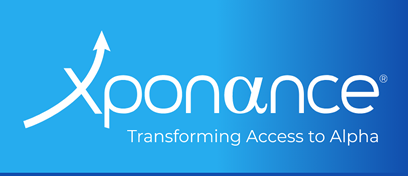Small Cap Core
Q1 2025 | March 31, 2025
Annualized Returns (%)
| QTD | YTD | 1 Year | 3 Years | 5 Years | 7 Years | 10 Years | Since Inception1 | |
| Gross of fees | -3.74 | -3.74 | -1.90 | 3.33 | 17.57 | 8.80 | 8.13 | 8.69 |
| Net of fees | -3.85 | -3.85 | -2.35 | 2.77 | 16.88 | 8.22 | 7.62 | 8.18 |
| Benchmark | -9.48 | -9.48 | -4.01 | 0.52 | 13.27 | 5.41 | 6.30 | 6.43 |
| 1 Inception Date: December 31, 2013 2 Benchmark: Russell 2000 | ||||||||
Characteristics
| Portfolio Weight | Benchmark Weight | |
| Excess return (gross since inception) | 2.26% | - |
| Excess return (net since inception) | 1.75% | - |
| Information ratio (gross since inception) | 0.48 | - |
| Information ratio (net since inception) | 0.41 | - |
| Holdings | 90 | 1,953 |
| P/E using FY1 est | 11.15 | 14.72 |
| P/E using FY2 est | 9.95 | 12.67 |
| Dividend yield | 1.53% | 1.47% |
| Historical 3 year EPS growth | 7.55% | 8.82% |
| Weighted average market cap in $M | $3,503.33mm | $3,449.21mm |
Sector Weights (%)
| Portfolio Weight | Benchmark Weight | |
| Communication Services | 4.51 | 2.61 |
| Consumer Discretionary | 11.31 | 9.12 |
| Consumer Staples | 0.84 | 3.18 |
| Energy | 2.76 | 5.11 |
| Financials | 19.83 | 19.79 |
| Health Care | 21.24 | 16.74 |
| Industrials | 15.15 | 17.65 |
| Information Technology | 11.11 | 12.32 |
| Materials | 6.57 | 3.88 |
| Real Estate | 2.48 | 6.45 |
| Utilities | 4.20 | 3.17 |
Top Ten Holdings (%)
| Portfolio Weight | |
| Corcept Therapeutics Incorporated. | 2.18 |
| Brookfield Infrastructure Corp. (New York) Class A | 2.12 |
| Jackson Financial Incorporation Class A | 2.12 |
| Sanmina Corporation | 2.10 |
| Beacon Roofing Supply, Inc. | 2.09 |
| Enact Holdings Inc | 2.09 |
| Alkermes Public Limited Company | 2.07 |
| Rush Enterprises, Inc. Class A | 2.06 |
| Axos Financial, Inc. | 2.06 |
| GMS, Inc. | 1.96 |
Distinguishing Attributes
- Proven quantitative stock selection models
- Focused on achieving optimal risk-return tradeoffs
- Structured and disciplined investment process
- Experienced investment team
- Corporate culture built on client service and diversity
Total product assets shown above may include accounts that are not reflected in the Global Investment Performance Standards (GIPS®)* report below. Portfolio characteristics are subject to change, and current holdings may differ. Past performance is not an indication of future results. Returns are presented gross and net of management fees and include the reinvestment of all income. A GIPS report is found at the end of this presentation. Statistics shown above are supplemental information to the GIPS report at the end of this presentation. Results represent preliminary data which is subject to change. For further performance data, please see the Xponance® Optimized Small Cap Core disclosures below.*GIPS® is a registered trademark of CFA Institute. CFA Institute does not endorse or promote this organization, nor does it warrant the accuracy or quality of the content contained herein.
Portfolio Management

Sumali Sanyal, CFA

Cameron McLennan, CFA
Director, Senior Portfolio Manager, Systematic Global Equities
About Xponance®
Xponance® is a multistrategy investment firm offering strategies across equity and fixed income. We are independent and employee owned by women and diverse professionals, whose common passion is to do the right thing for our clients and each other. Xponance® is the successor firm representing the integration of legacy firms, FIS Group, Inc. and Piedmont Investment Advisors, LLC
Investment Philosophy & Process
The investment philosophy for this strategy is centered on the belief that long-term alpha can best be achieved through the construction of diversified, high active share portfolios that feature quality, reasonably valued companies that have strong earnings visibility. The most consistent results are generated through a core, risk-aware approach to portfolio management. The investment process for this strategy focuses on identification of quality companies in the “Sweet Spot” of the investment universe, agile and multifaceted stock selection through the use of internally developed quantitative models, and dynamic risk management through portfolio construction.
Portfolio Facts
| Inception date | 12/31/2013 |
| Assets in strategy | $2mm |
| Benchmark | Russell 2000 |
| Predicted tracking error | 3-5% vs. b/m |
| No. of stocks | <100 |
| Sectors | B/m ±4% |
| Annual turnover | 100% |
| Min. investment | $5mm |
| Vehicle(s) available | Separately managed |
Trailing period performance as of 3/31/20251
| (%) | QTD | CYTD | 1-Year | 3-Years | 5-Years | 10-Years | Since Inception | Inception Date | |||||||||||||||||||
| Composite Gross | -3.74 | -3.74 | -1.90 | 3.33 | 17.57 | 8.13 | 8.69 | 12/31/2013 | |||||||||||||||||||
| Composite Net | -3.85 | -3.85 | -2.35 | 2.77 | 16.88 | 7.62 | 8.18 | ||||||||||||||||||||
| Index | -9.48 | -9.48 | -4.01 | 0.52 | 13.27 | 6.30 | 6.43 | ||||||||||||||||||||
| 1 Benchmark: Russell 2000 Past performance is not indicative of future results. Periods greater than 1 year are annualized. The U.S. Dollar is the currency used to express performance. Investments in public equities involve risks, including the loss of principal invested. This strategy's returns may fluctuate in response to one or more of many factors, that include financial condition of individual companies; the business market in which individual companies compete; industry market conditions; interest rates; general economic environments; portfolio management activities; and data or modeling risk where proprietary models are used in the management of the strategy. Gross of fee returns are presented before management fees, but after custodial fees and transaction costs and include the reinvestment of all income. Since August 1, 2019, net of returns reflects a model annual management fee of 0.65%, applied monthly. Net of fee returns are calculated by deducting the model management fee from the monthly gross of fee returns. Prior to August 1, 2019, net of fee returns reflects the deduction of actual management fees. (including performance-based fees if applicable) from the monthly gross of fee returns. Actual management fees incurred by clients may vary. The composite include zero commission accounts. The standard management fee schedule is as follows: First $50mm: 70 bps; Next $50mm: 60 bps; Over $100mm: 50 bps. Fees are charged to clients on a quarterly basis. Fees are calculated as a percentage of assets under management and vary based upon the type of product and the total amount of assets under management. The percentage fee is expressed terms of basis points ("BPS") for our products. One hundred basis points equal 1%. All fees are negotiable. Xponance claims compliance with the Global Investment Performance Standards (GIPS®). To obtain GIPS-compliant performance information for the firm's strategies and products, please contact info@xponance.com. The firm maintains a complete list and description of composites and limited distribution pooled fund(s) which is available upon request. Please refer to the GIPS® report for additional performance information which is included on the next page of this presentation. GIPS® is a registered trademark of CFA Institute. CFA Institute does not endorse or promote this organization, nor does it warrant the accuracy or quality of the content contained herein. | |||||||||||||||||||||||||||
Annual Disclosure Presentation
| Performance Results (%) | 3-Yr Annualized Ex-Post Standard Deviation (%) | |||||||||||||||||||||
| Year End | Composite Gross TWR | Composite Net TWR | Benchmark1 | Composite Gross | Benchmark1 | Number of Portfolios | Composite Assets ($mm) | Total Firm Assets ($mm) | ||||||||||||||
| 2024 | 5.40 | 4.91 | 11.54 | 24.89 | 23.30 | Five or fewer | 2.10 | 20,489 | ||||||||||||||
| 2023 | 23.04 | 22.38 | 16.93 | 22.57 | 21.11 | Five or fewer | 0.17 | 16,613 | ||||||||||||||
| 2022 | -13.89 | -14.45 | -20.44 | 26.82 | 26.02 | Five or fewer | 0.14 | 13,512 | ||||||||||||||
| 2021 | 27.04 | 26.22 | 14.82 | 23.81 | 23.35 | Five or fewer | 0.16 | 14,866 | ||||||||||||||
| 2020 | 10.01 | 9.38 | 19.96 | 25.77 | 25.27 | Five or fewer | 0.13 | 12,493 | ||||||||||||||
| 2019 | 30.12 | 29.56 | 25.52 | 16.64 | 15.71 | Five or fewer | 0.11 | 5,411 | ||||||||||||||
| 2018 | -9.18 | -9.49 | -11.01 | 14.55 | 15.79 | Five or fewer | 0.18 | 4,026 | ||||||||||||||
| 2017 | 10.40 | 10.08 | 14.65 | 12.67 | 13.91 | Five or fewer | 0.19 | 6,817 | ||||||||||||||
| 2016 | 19.96 | 19.54 | 21.31 | 14.18 | 15.76 | Five or fewer | 0.18 | 6,249 | ||||||||||||||
| 2015 | -0.99 | -1.33 | -4.41 | N/A | N/A | Five or fewer | 0.10 | 5,577 | ||||||||||||||
| Composite inception date: December 31, 2013. 1 Benchmark: Russell 2000 Xponance,® Inc. ("Xponance®") claims compliance with the Global Investment Performance Standards (GIPS®) and has prepared and presented this report in compliance with the GIPS standards. Xponance® has been independently verified for the periods from November 1, 1998 through December 31, 2023. The verification report is available upon request. A firm that claims compliance with the GIPS standards must establish policies and procedures for complying with all the applicable requirements of the GIPS standards. Verification provides assurance on whether the firm's policies and procedures related to composite and pooled fund maintenance, as well as the calculation, presentation, and distribution of performance, have been designed in compliance with the GIPS standards and have been implemented on a firm-wide basis. Verification does not provide assurance on the accuracy of any specific performance report. GIPS® is a registered trademark of CFA Institute. CFA Institute does not endorse or promote this organization, nor does it warrant the accuracy or quality of the content contained herein. On August 31, 2018, FIS Group, Inc. ("FIS Group") acquired Piedmont Investment Advisors, Inc.'s ("PIA") predecessor, Piedmont Investment Advisors, LLC. Xponance®, Inc. ("Xponance®") is an independent, registered investment adviser and is the successor registrant under the Investment Advisers Act of 1940 (the "Advisers Act") to both FIS Group and its wholly-owned subsidiary, PIA. Pursuant to a corporate rebranding and consolidation strategy, Xponance® was established effective April 1, 2020, to leverage the long histories of its predecessor entities in providing customized investment management products to institutional clients. FIS Group (through its former subsidiaries, Fiduciary Investment Solutions, Inc. and FIS Funds Management, Inc.) managed assets since 1996 and PIA (through its former affiliate Piedmont Investment Advisors, LLC) began managing assets in 2000. The firm maintains a list of composite descriptions and limited distribution pool fund(s) descriptions, which is available upon request. Xponance is an investment adviser registered with the United States Securities and Exchange Commission ("SEC"). Our registration as an investment adviser does not imply any level of skill or training and the information in this report has not been approved or verified by the SEC or by any state securities authority. Total firm assets presented through, and including, Calendar Year 2019 represent total firm assets for PIA, prior to April 1, 2020, this composite was managed by legacy firm PIA. Total firm assets presented post April 1, 2020 represent the total firm assets of Xponance®. Optimized Small Cap Core Composite contains fully discretionary Small cap core equity accounts and for comparison purposes is measured against the Russell 2000 Index. The product typically has fewer than 100 holdings. The Optimized Small Cap Core Composite was created December 31, 2013. Results are based on fully discretionary accounts under management. Accounts that are no longer with the firm are included through the last full measurement period such accounts were managed in the composite's style. Past performance is not indicative of future results. The U.S. Dollar is the currency used to express performance. Gross of fee returns are presented before management fees, but after custodial fees and transaction costs and include the reinvestment of all income. Since August 1, 2019, net of returns reflects a model annual management fee of 0.65%, applied monthly. Net of fee returns are calculated by deducting the model management fee from the monthly gross of fee returns. Prior to August 1, 2019, net of fee returns reflects the deduction of actual management fees. (including performance-based fees if applicable) from the monthly gross of fee returns. Actual management fees incurred by clients may vary. The composite include zero commission accounts. The standard management fee schedule is as follows: First $50mm: 70 bps; Next $50mm: 60 bps; Over $100mm: 50 bps. Fees are charged to clients on a quarterly basis. Fees are calculated as a percentage of assets under management and vary based upon the type of product and the total amount of assets under management. The percentage fee is expressed terms of basis points ("BPS") for our products. One hundred basis points equal 1%. All fees are negotiable. The three-year annualized standard deviation measures the variability of the composite gross returns and the benchmark returns over the preceding 36-month period. Internal dispersion presented is an equal-weighted standard deviation of annual gross returns of those portfolios that were in the composite for the entire year. For those years when less than six portfolios were included in the composite for the full year, no dispersion measure is presented Policies for valuing investments, calculating performance, and preparing GIPS reports are available upon request. | ||||||||||||||||||||||
